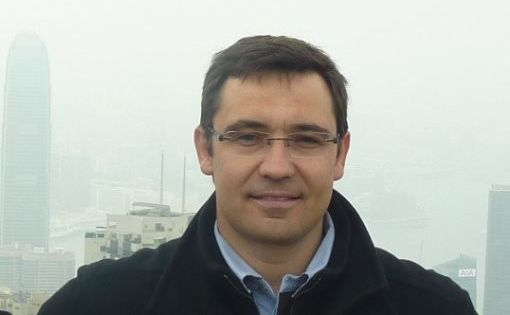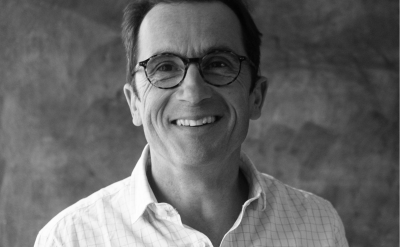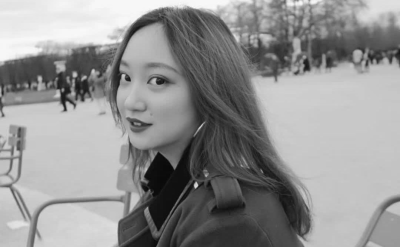News

Marc Lefebvre, SK 1997: “Be yourself; it’s the best way to be unique!”
In the highly competitive eyewear industry, Marc Lefebvre (SK 1997) made the decision to work for a family-owned business that has now become a global player with a presence in 80 countries. Thrilled by the opportunities that have punctuated his career between Europe and Asia, the CEO of Killine talks to us about his career path, which steered clear of the big corporations with their fully laid out career plans.
Why did you choose to move abroad very quickly?
Marc Lefebvre: It’s quite simple. I’d lived for a bit in Germany and I’d attended the University of Manchester to earn a double degree. After spending a year doing my military service as an officer, I was approached by some big corporations in France, but I didn’t want to sign up for 32-hour weeks and a career path all laid out. The idea of security didn’t appeal to me. In my twenties, I wanted to do something more challenging. We were already in the midst of a crisis in the late 1990s and we couldn’t see where it was going. I wanted to go to China and I ended up in Portugal! (laughs) These days I spend most of my time in Asia and mainly in planes…
You chose a family-run organisation, Killine. Why?
It was the personal touch of meeting the owners that swayed my decision. They were people with values, with an informal and unconventional style. Young people are often looking for a mentor. They trusted me even though I didn’t know the optical and eyewear manufacturing industry at all.
One thing that stands out about the company, which was established in France’s Jura region, is that it knew very early on that it should relocate to Ireland, followed by Portugal and then China… In 6 months, thanks to a series of opportunities, I had become the global sales director of this small industrial company. The family-run business then grew tremendously and now it’s one of the major players in the frame manufacturing market, particularly for prescription eyeglasses. We did well. I became CEO in 2009. But every adventure has an end. The family decided to sell to an investment fund in 2014.
What direction did the fund want to take?
They wanted the group to last, to grow and to become a global leader. We wanted to expand in downstream and integrate manufacturing and distribution. It was a very interesting, massive challenge in a context that was completely different to the family-run business: we went from informal meetings and dinners on the weekends to highly structured board meetings. It all went really well and the Exit happened pretty quickly: after two and a half years we were sold to Inspecs, a company in our sector which we ourselves had targeted as part of our diversification efforts and which ended up buying us. Today we form a larger, fully integrated group and in our industry there are few models like this. There is a giant, the Luxottica Essilor group. We are a small version of this big corporation, because in addition to licensing and to making eyeglasses we also have a lens-making activity in a highly specialised segment.
How are you organised?
At the head of the group is the owner of the company that acquired us, and I am the Group Managing Director for Inspecs Killine. I run the operations with him and my own focus is on the OEM (Original Equipment Manufacturer) side, the manufacturing and distribution of the brands we produce ourselves. We are present in 80 countries around the world. I’m also in charge of reorganising the structure so that the entire company can benefit from supply chain synergies in particular.
Is the eyewear market ultra competitive?
It’s a rather unique, fragmented sector with many players across manufacturing, fashion and distribution. Luxottica Essilor is the undisputed leader; a giant that is 50 times bigger than the number 2. But this isn't reflective of our industry.
Today the manufacturers are all concentrated in China. Actually, 95 to 99% of manufacturing is done here. To put it simply, across just three or four cities we have thousands of competitors. It’s really tough, but there is a way to make it if you work harder than everyone else and keep to a well defined course. The trick is to offer the biggest players possibilities to distinguish themselves from their competitors, and to be backed by an organisation that makes it possible to fulfil their very specific needs. We have the good fortune of working with the bulk of these big groups in our sector… but “good fortune” is something you have to work at every day. Despite our relatively small size, we can certainly now say that we’re in the global top 20 for what we do.
It’s important to reach a critical size. We have about 1,500 employees. Our head office is officially in Bath, England. From there, we manage everything related to the brands, the licensing, the marketing, including design and sales, even though our office in the US specifically handles this market… Our teams in Lisbon work more on the OEM side and from there we also manage worldwide sales support and do some design. The head office for Asia is in Macau. We have factories in China and Vietnam. Once again we were one of the pioneers when we set up this unit outside of China; it was something really different. And the group also includes a plant in Europe − in central London – that makes vintage eyewear from gold and contributes to the story and image of the group with the glasses from the Harry Potter film and also John Lennon’s original glasses, among others!
Family-owned business, private equity fund, buyout by a company… you’ve managed to adapt to different environments and remain at the helm.
What’s important are the people that support you. You have to know how to surround yourself with a team that will move you forward; you have to stay curious, alert, keep a finger on the pulse. There are always opportunities. You have to be able to learn quickly to understand the new methods.
How do you handle the constant travelling and the cultural differences in your different teams?
I have very little downtime. I travel a lot between Asia and Europe. I spend 7 or 8 months of the year in Asia. As the CEO, business development is always a priority but the different production sites also need to be managed, motivated, refocused, developed…
The travel doesn’t bother me; I don’t see it as an imposition. I fell into it! I’m not an expat moving from one country to the next every 3 to 5 years with their family; I guess I’d describe myself more as rootless. My family stayed in Europe. Sometimes that complicates things, but we chose to live this way and to adapt to that rhythm. I can’t complain and I’m lucky enough to be surrounded by some great people.
On a human level, differences of points of view are very enriching. They give you varied perspectives and allow you to get a full picture of the world. Working in Asia gives you a different sense of the world’s evolution than you get in Europe for example. Today 50% of the world’s wealth is concentrated in Asia, and in 10 years that will no doubt rise to 75%. If you think about the principle of communicating vessels, there is some cause to be a little concerned for the Old Continent. In a way this shows I made the right choice 20 years ago when I decided to leave.
What would you like to say to SKEMA’s students and to young professionals?
When I see the fierce competition in the education system in Asia and the work put in to become a virtuoso or to win a Nobel Prize for maths while being an Olympic champion, just to distinguish oneself… in short, I would tell the younger generation to be themselves: that is the best way to be unique!
When you’re young, making choices is probably the hardest thing to do. In any case, it seems important to me to give it your all: whatever it is you choose, do it with passion. And remember that it’s possible not to work for big corporations, as long as you can show initiative and are ok with perhaps sacrificing a little comfort in the beginning.
Lastly, don’t forget your values. The world doesn’t owe you a thing. You have to work hard; success has to be earned. Give and you will receive. Otherwise, change! By taking a few risks, you’ll win on all levels…




